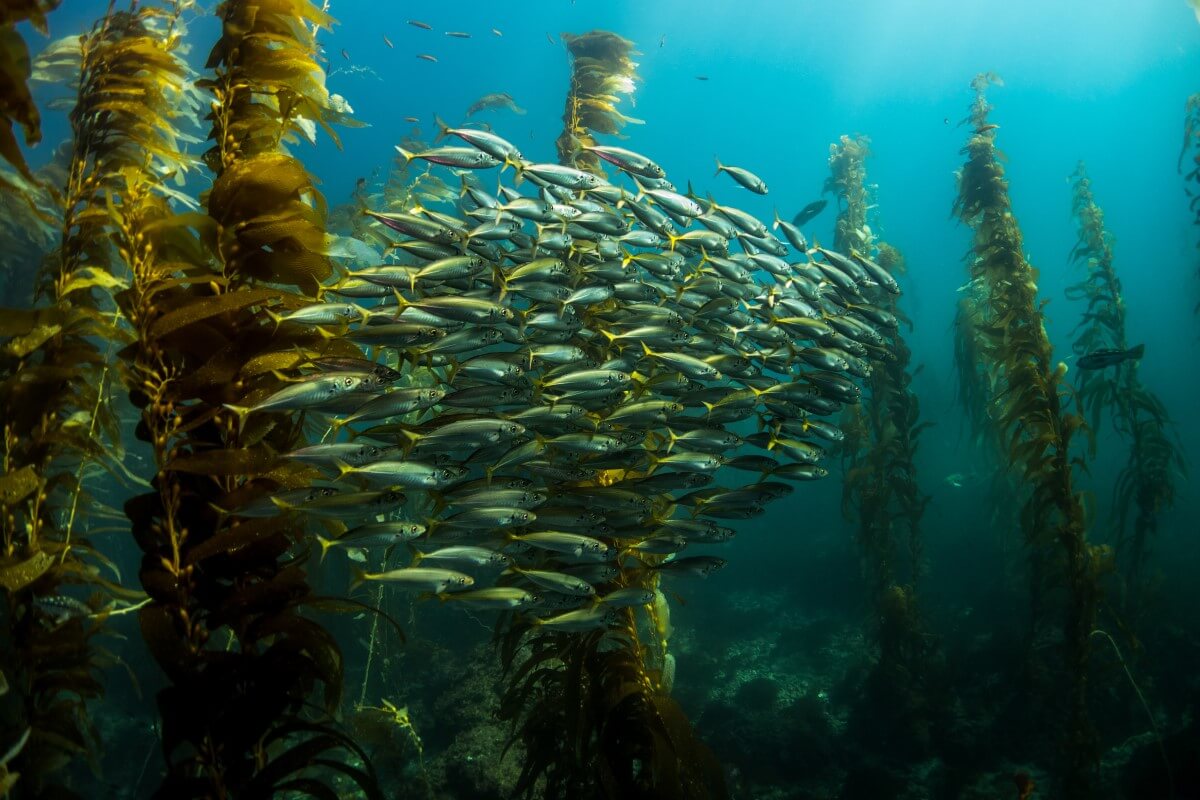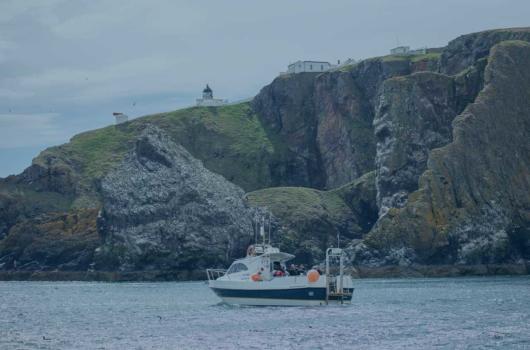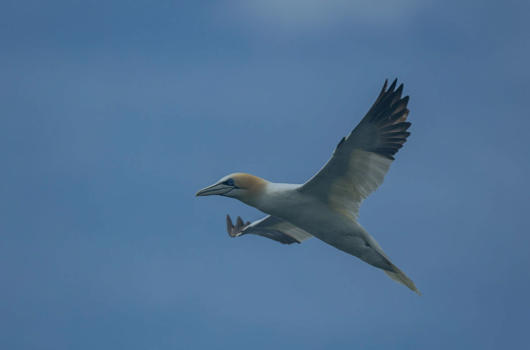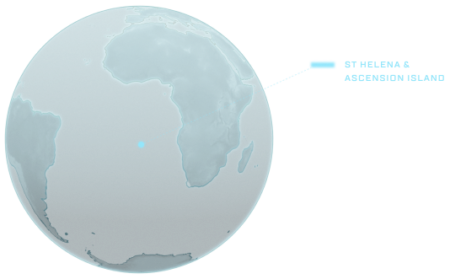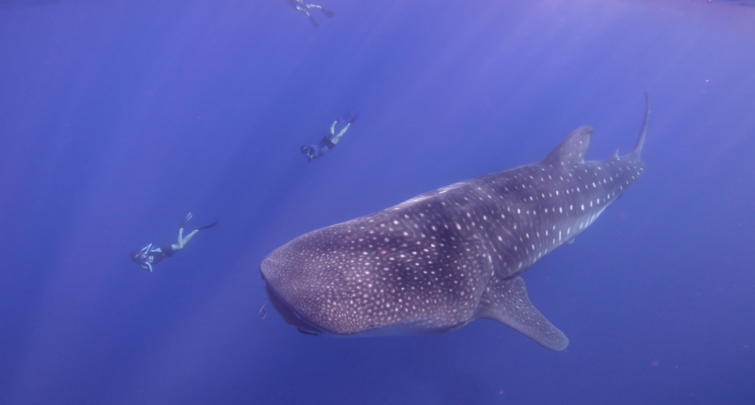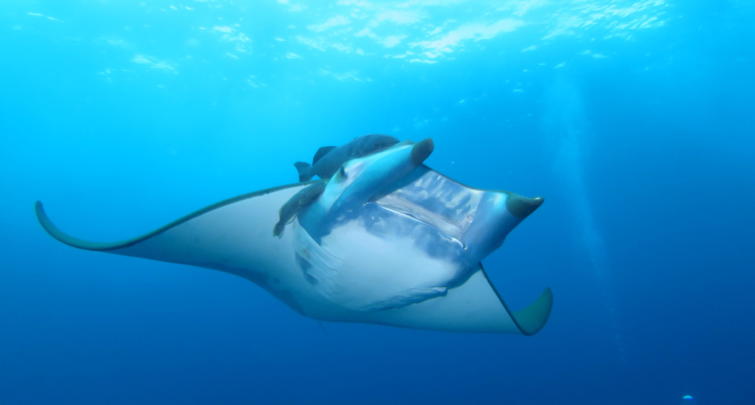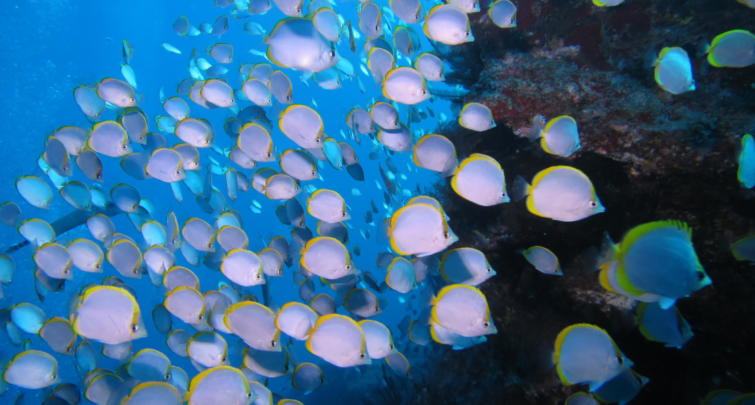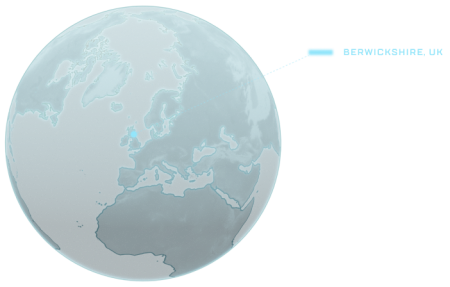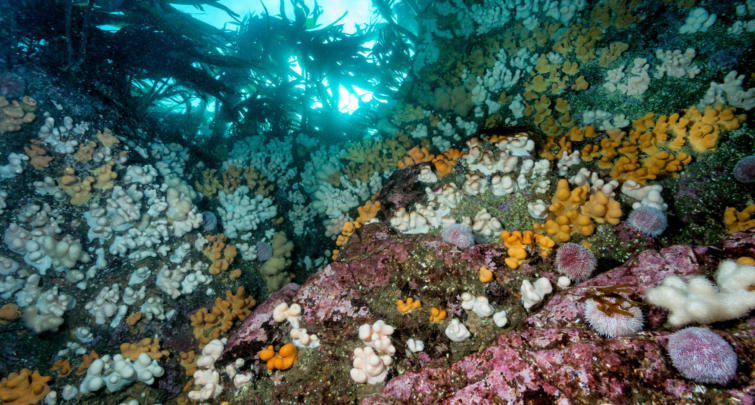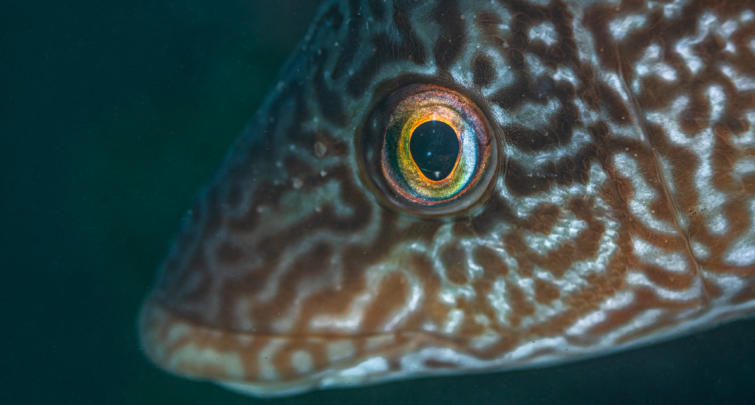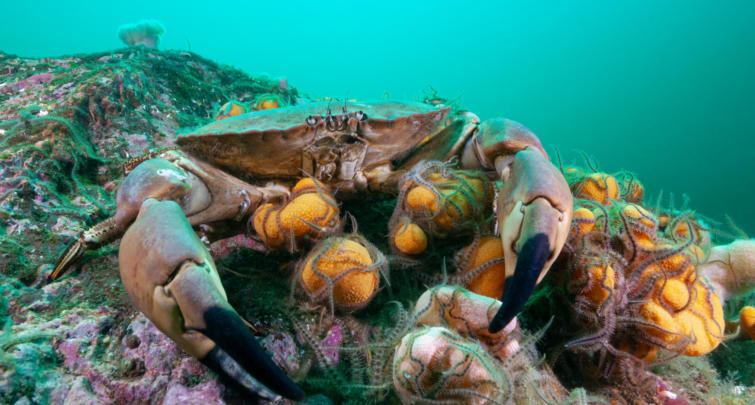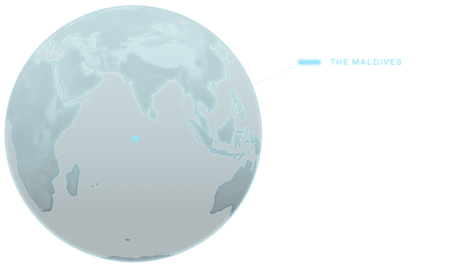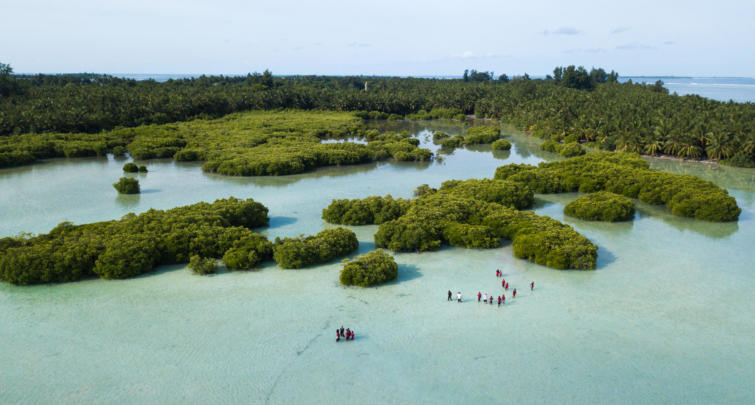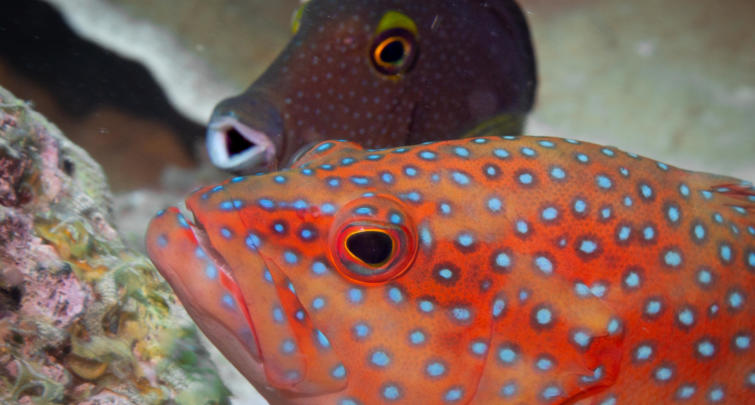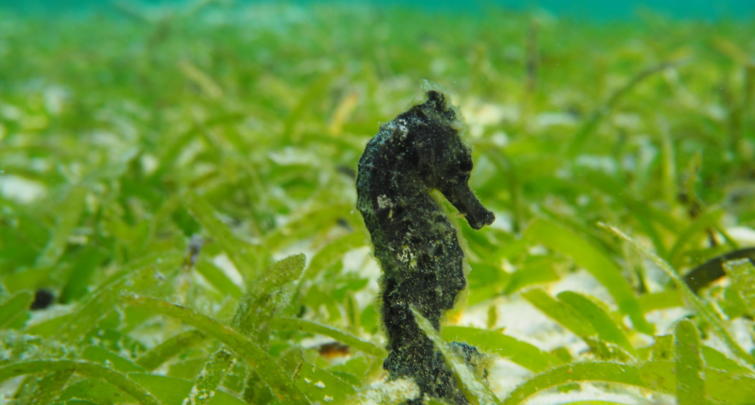Here's a fact for you...
A Journey by Blue Marine Foundation
The Ocean's
Web of Life
We use audio to enhance your experience. A rich tapestry of marine life, everything is interconnected
Fish play a vital role in the delicate balance of the ocean’s health.
A healthy ocean is more resilient.
A healthy ocean full of life can help buffer the impacts of climate change. Healthy populations of marine life also have a better chance of withstanding rapid environmental changes.
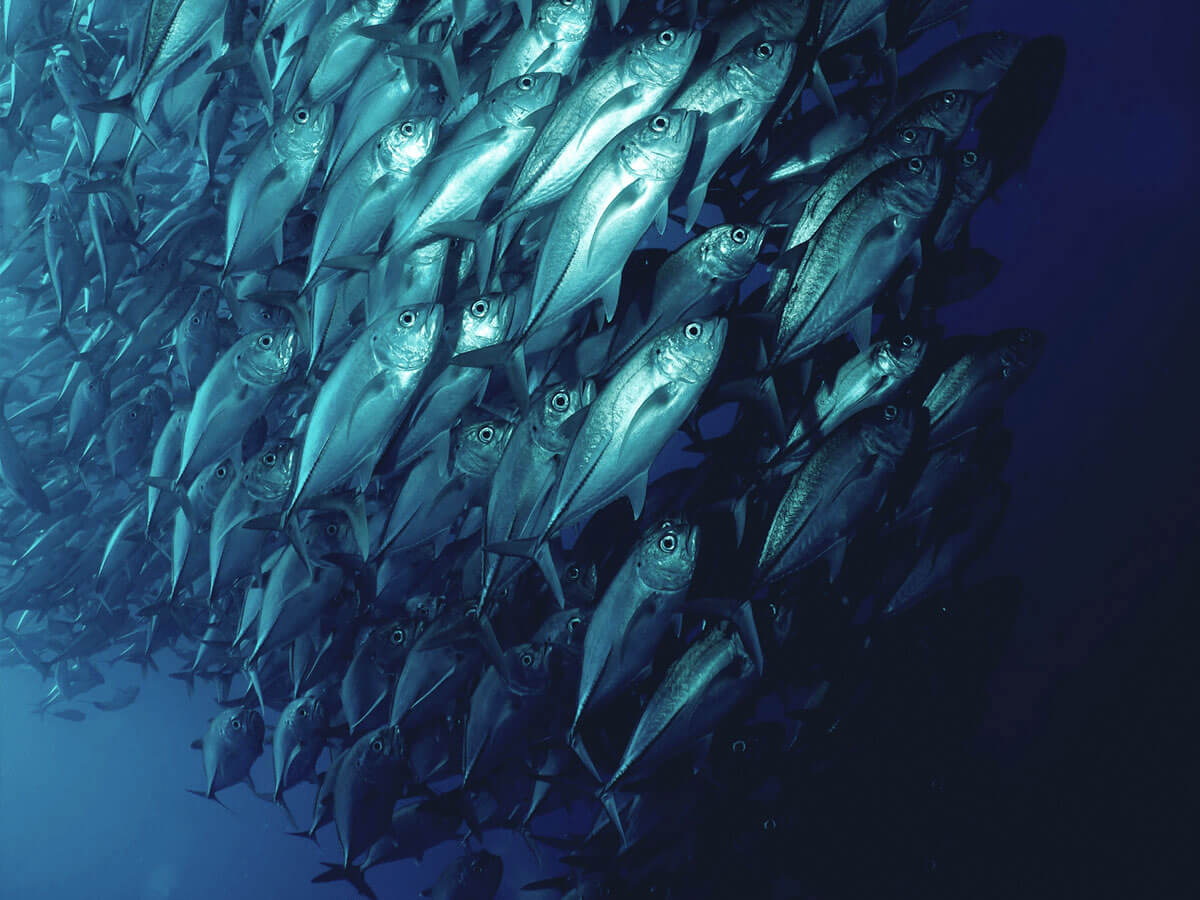
Fish stocks are not infinite, many species are now endangered from overfishing and destructive fishing.
Thunnus albacares
Yellowfin Tuna
Status: near threatened
In the Indian Ocean, yellowfin tuna has been overfished since 2015 and catches now need to be reduced as a matter of urgency to save the stock from collapse.
How do we make fishing more sustainable?
Sustainable fishing allows for the regeneration of habitats and fish stocks, including species not directly targeted by fishing, or ‘non-target’. It extracts fewer fish than are replenished naturally, and does so in a non-destructive way.
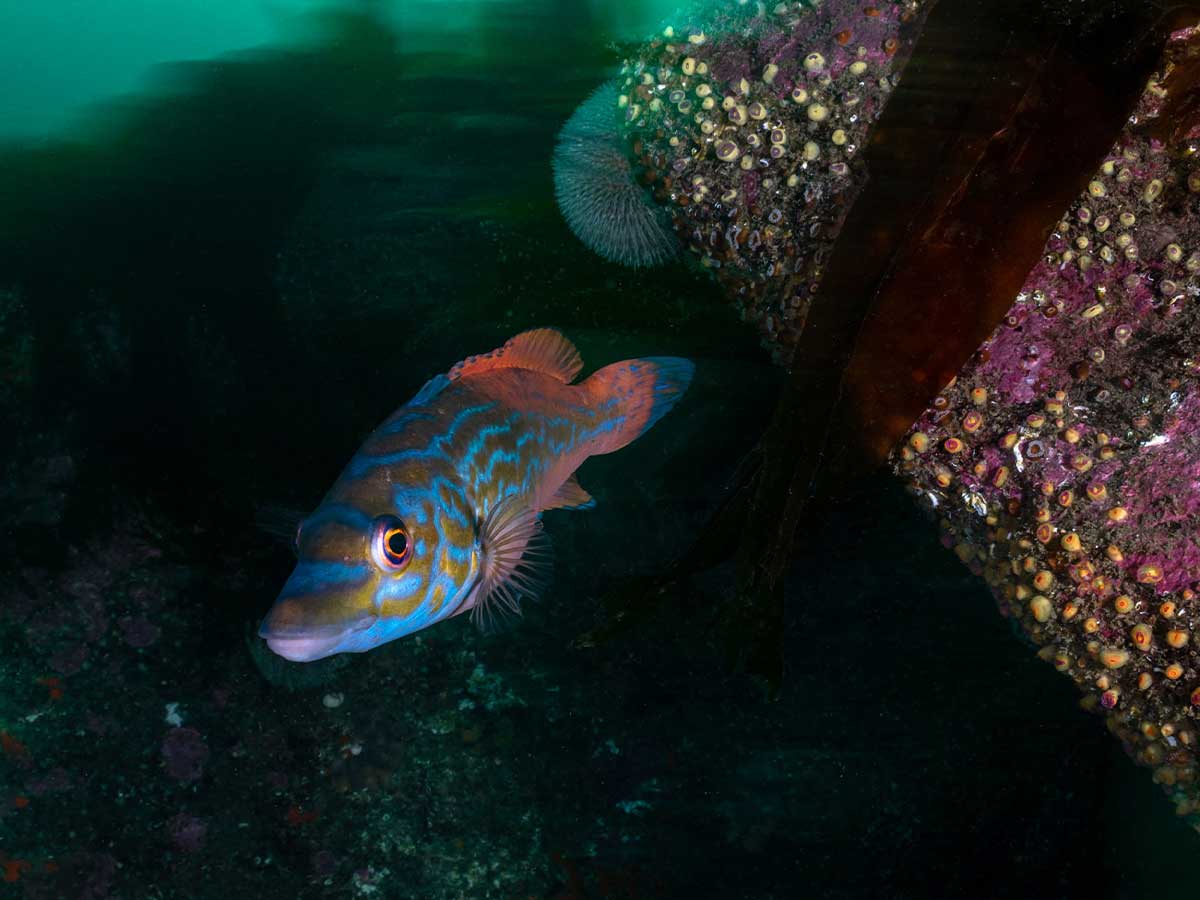
See if you can get this one right...
What makes commercial fishing the largest hunting operation on the planet?
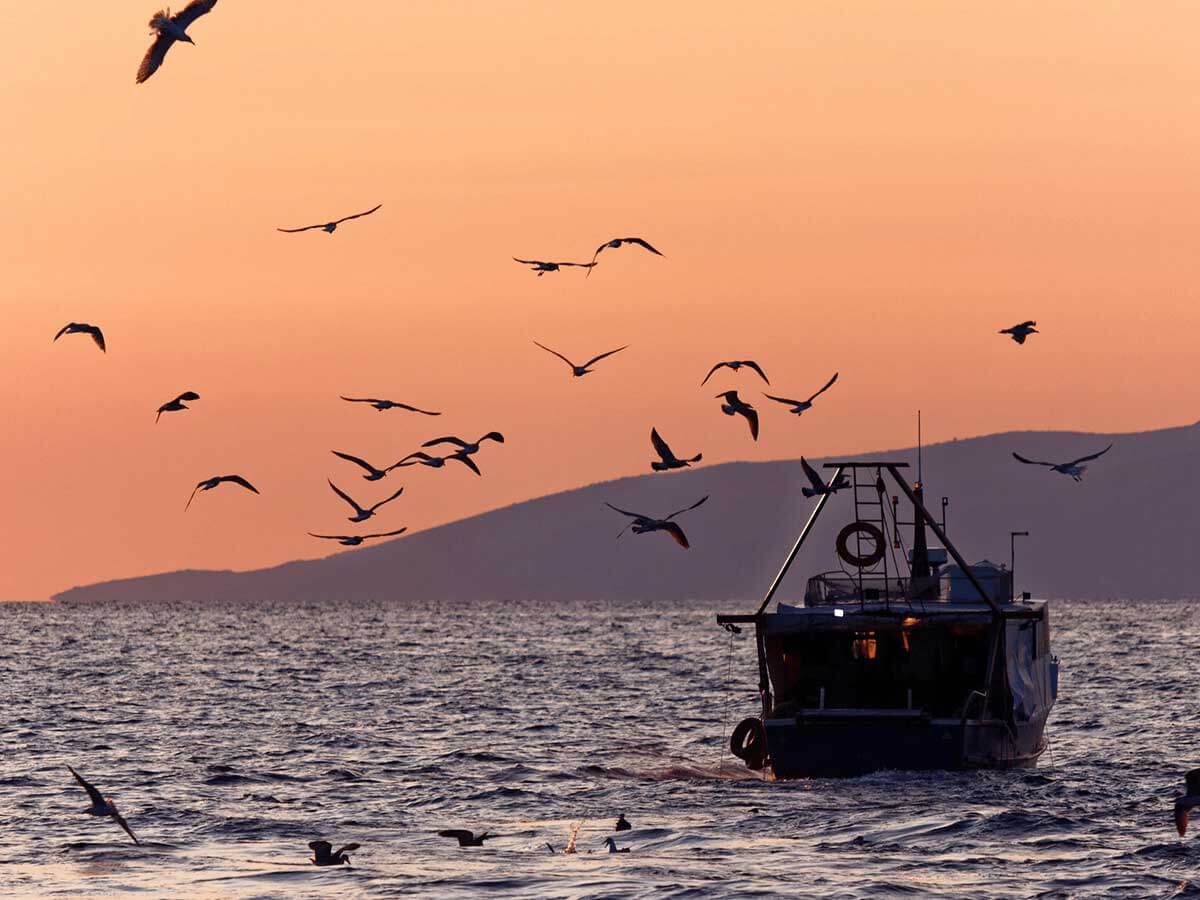
Climate change also impacts fish and marine habitats.
Climate change
Fish are sensitive to changes in water temperature
As the ocean water warms, fish populations are moving closer to the planet’s two poles in search of cooler water. This impacts ecosystems and coastal communities that rely on local fisheries.
Here's a fact for you...
Sustainable fishing and lower carbon emissions could reduce the risk of extinction for vulnerable marine species by 60%.
Protecting areas of our ocean helps reverse the effects of overfishing.
The spillover effect
Fish and other marine life thrive in protected areas, then ‘spill over’ into the surrounding ocean.
MPAs create space for marine life to grow and multiply, some of which ‘spill over’ into the surrounding areas as animals move around. This ‘spillover’ effect benefits the entire ecosystem and helps to revive populations depleted by overfishing.
See if you can get this one right
What is bycatch?
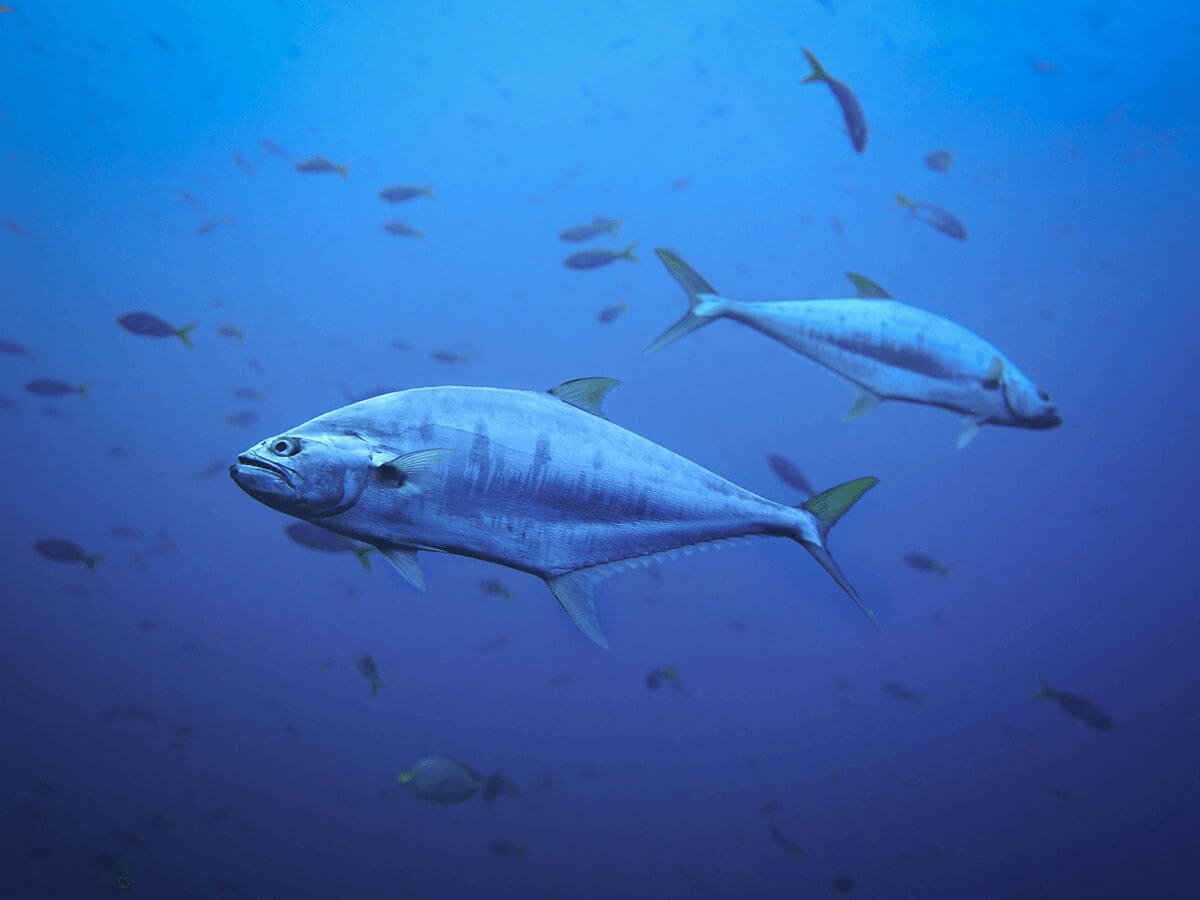
Blue Marine Foundation is working to
Rethink how we fish
Blue Marine is working with the local fishing community and the Berwickshire Marine Reserve to implement a sustainable fishery that benefits marine wildlife and the local community.
Project Spotlight
Explore the Berwickshire Marine Reserve, where kelp forests grow thick and wild and soft corals and anemones carpet rocky reefs. The converging cold and warm water currents support an unusual diversity of marine life, from Arctic wolf fish and pods of bottlenose dolphins to cup corals.
Protecting the
Underwater World
Dive In
Rainforests
of the Sea
Dive In
Did you know that kelp stores carbon within their fronds?
Some of these break away and sink to the seafloor, drawing the carbon down into the seabed sediment.
